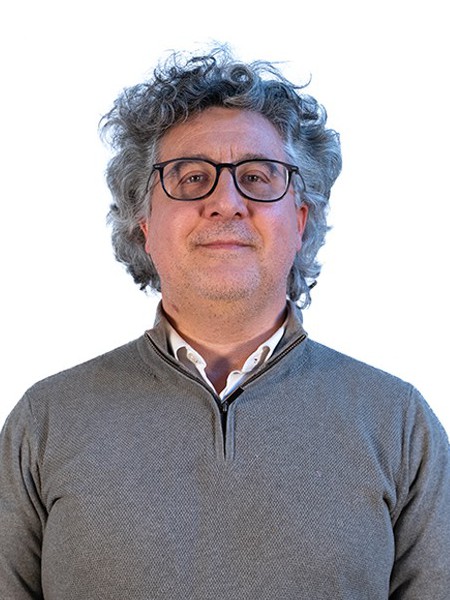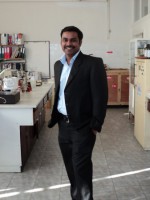resumo
In this paper, we present a systematic quantum-mechanical density functional theory (DFT) study of adsorption of small gas molecules in cation-exchanged Engelhard titanosilicate ETS-10 crystalline materials. Adsorbates with a range of polarities were considered, ranging from polar (H2O), quadrupolar (CO2 and N-2), to apolar (CH4) atmospheric gases. Starting from the base-case of Na-ETS-10, other extra framework cations such as Li+, K+, Rb+ and Cs+ were considered. The DFT calculations were performed with the M06-L functional and were corrected for basis set superposition error with the counterpoise method in order to provide accurate and robust geometries and adsorption energies. For all adsorbates, the adsorption enthalpies decrease in the order Li+ > Na+ > K+ > Rb+ > Cs+, while adsorbate - cation interaction distances increase along the same order. For the two extreme cases, the enthalpies calculated at the M06-L/6-31++G** level of theory for CH4, N-2, CO2, and H2O interaction with LP (Cs exchanged materials are -21.8 (-1.7) kJ . mol(-1), -19.0 (-10.7) kJ . mol(-1), -34.4 (-21.3) kJ . mol(-1), and -70.5 (-36.1) kJ . mol(-1), respectively. Additionally, the calculated vibrational frequencies are found to be in quite good agreement with the characteristic vibrational modes of alkali metal cation-exchanged ETS-10 and also with the available experimental frequencies for CH4, N-2, CO2, and H2O interactions with alkali metal cations in the 12-membered channel of ETS-10.
palavras-chave
MICROPOROUS TITANOSILICATE ETS-10; VIBRATIONAL-SPECTRA; CATION-EXCHANGE; ADSORPTION; METHANE; SIEVE; ETHANE; SPECTROSCOPY; LOCATION; ETHYLENE
categoria
Crystallography
autores
Pillai, RS; Jorge, M; Gomes, JRB
nossos autores
agradecimentos
The authors thank Dr. Moises L. Pinto, University of Lisbon, for fruitful discussions. This work was developed in the scope of the Projects POCI-01-0145-FEDER-007679 vertical bar UID/CTM/50011/2013 (CICECO), PTDC/EQU-EQU/100476/2008 and Programa Investigador FCT, financed by national funds through the FCT/MEC and cofinanced by FEDER under the PT2020 Partnership Agreement. RSP gratefully acknowledges a post-doctoral fellowship from FCT with reference SFRH/BPD/70283/2010 and the Science and Engineering Research Board (SERB), Department of Science and Technology (DST), Govt. of India, for the award of National Post-Doctoral Fellowship (SERB-NPDF) with reference PDF/2017/001252.



